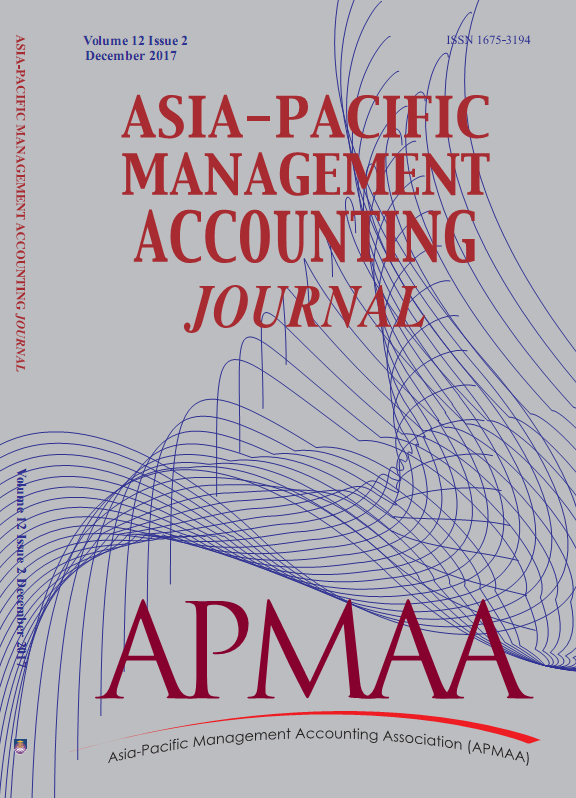Volume 15 Issue 2, August 2020
ARTICLE INFO
Article History:
Received: 11 March 2020
Accepted: 2 July 2020
Published: 31 August 2020
ASIA-PACIFIC MANAGEMENT ACCOUNTING JOURNAL, VOLUME 15 ISSUE 2
MALAYSIAN RISK MANAGEMENT COMMITTEES AND FIRMS’ FINANCIAL PERFORMANCE
Roslida Ramlee1 and Normah Ahmad2
1MARA University of Technology, Kota Kinabalu, Sabah, Malaysia
E-mail: This email address is being protected from spambots. You need JavaScript enabled to view it.
2MARA University of Technology, Arau, Perlis, Malaysia
E-mail: This email address is being protected from spambots. You need JavaScript enabled to view it.
ABSTRACT
The establishment of a risk management committee (RMC) as a board committee is mandatory for finance firms in Malaysia. But for firms in the non-finance sector, the practice is still voluntary. This study examined (1) the roles and responsibilities of RMC on Malaysian non-finance firms and (2) the relationship between RMC and firms’ financial performance. The data collected were from the corporate annual reports and for the period 2009 – 2016. Firms’ financial performance was measured by return on assets (ROA), return on equity (ROE) and Tobin’s Q. The RMC were proxied by five (5) characteristics: its size, its independence, the existence of CEO/ COO/CRO/CFO on RMC, their knowledge and expertise, and frequency of RMC meetings. The data were analyzed using the Panel Data Analysis Stata13. This study found that the responsibilities of RMC vary from simple reviewing and risk categorizing to approving risk strategies, reporting to the board of directors and providing assurance on the risk management process. This study showed that the existence of CEO/COO/CRO/CFO on RMC and their knowledge and expertise are associated with firms’ financial performance. This study concluded that though RMC in non-finance firms is a voluntary practice, their establishment is one of the important strategies of corporate governance reform.
Keywords: RMC, corporate governance, Malaysia
Keywords: RMC, corporate governance, Malaysia


